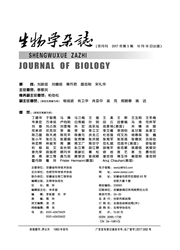

 中文摘要:
中文摘要:
小家鼠(Mus musculus)是一种与人类伴生的重要啮齿类动物,它起源于印度次大陆,分化出三个主要亚种,新石器时期开始向欧亚大陆扩散。随着人类向岛屿的殖民,不同亚种先后迁徙到世界各个岛屿。近年来,岛屿以其独特的时空优势,在小家鼠进化研究中日益凸显出其重要性,并被称为"岛屿殖民动力学"。欧洲、亚洲、大洋洲与南极洲等地区岛屿上小家鼠不同亚种起源、迁徙、竞争与遗传结构等研究结果,不仅表明小家鼠的进化史与人类殖民史密切相关,且为"雌性抵抗入侵"提供了充分证据。
 英文摘要:
英文摘要:
The house mouse(Mus musculus) is an important rodent commensal with humans.Mus musculus,which could be separated into three major subspecies,was derived originally from the north of the Indian subcontinent,spreading throughout Eurasia at the beginning of the Neolithic period.Along with the colonization of humans into new islands,different subspecies of house mice have been carried on ships over the world.Recently,due to the advantages of clearer dimension of time and space in the islands,island-model played an important role in mouse evolution.The origin,migration,competition and genetic structure of the subspecies of M.musculus in islands of the world,including Europe,Asia,Antarctica and other areas,not only indicate extensive relationships between mouse evolution and human colonization,but also provide strong evidence for the hypothesis that 'gene is biased in favor of introduced males over females′.
 同期刊论文项目
同期刊论文项目
 同项目期刊论文
同项目期刊论文
 期刊信息
期刊信息
